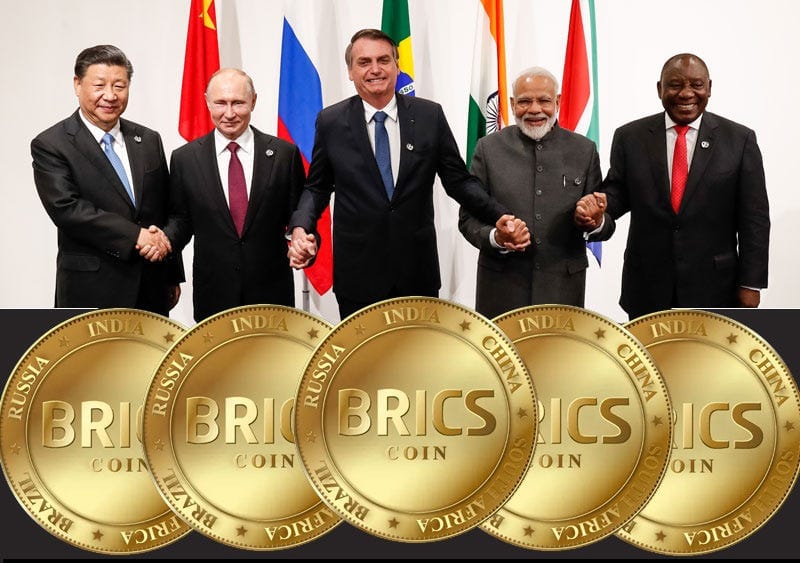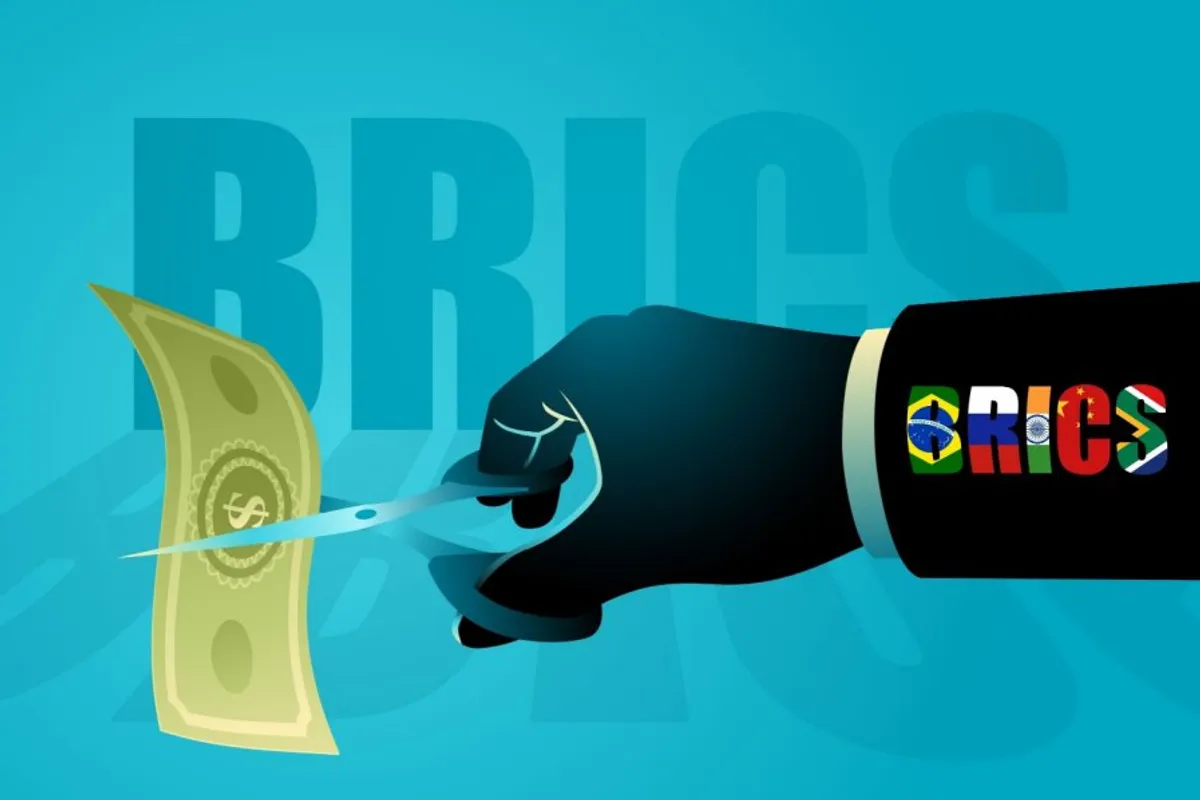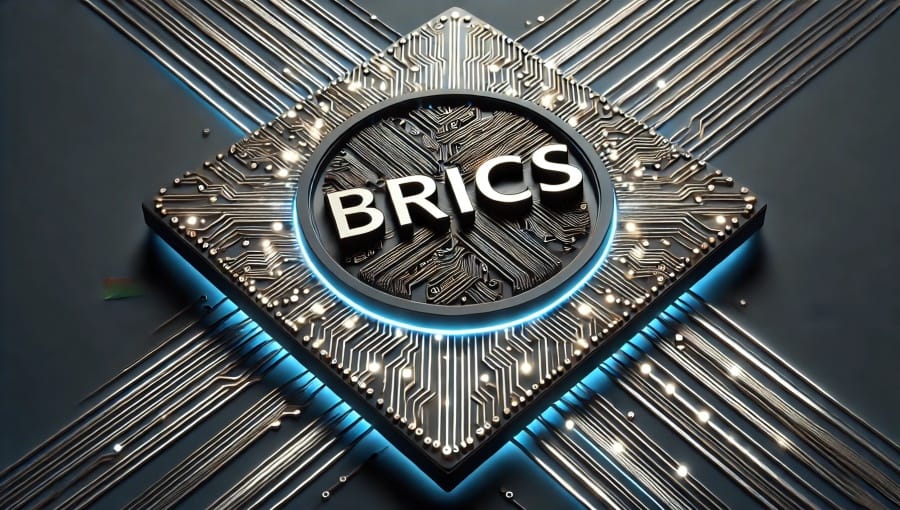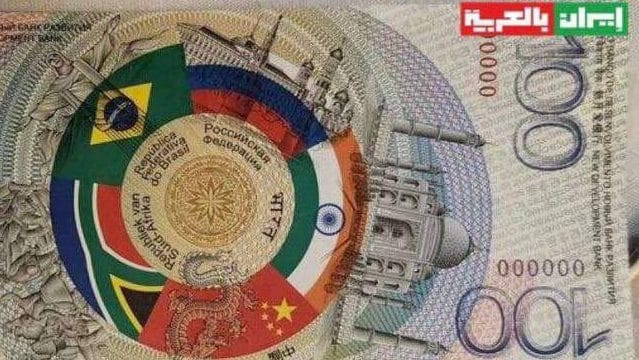The BRICS nations—Brazil, Russia, India, China, and South Africa—have been talking more about creating a new global currency that could challenge the power of the US dollar. This idea has led to discussions about whether such a currency could benefit or hurt the global economy.
Why Do They Want a BRICS Currency?
The BRICS countries believe that the current system, where the US dollar is the main currency used around the world, is unfair to developing countries like theirs. They argue that decisions made by the US Federal Reserve (its central bank) can cause problems for their economies, such as inflation (rising prices) and money leaving their countries.
There’s also a fear that the US can use the dollar’s dominance to punish countries with sanctions or other financial pressure, which could affect their independence.

Possible Advantages of a BRICS Currency
- Less Reliance on the US Dollar: BRICS nations would no longer be as affected by US economic and political decisions.
- More Global Power: If their currency is widely used, these countries would have more influence in the global economy.
- Stronger Financial System: A new currency could create a more balanced global system, which might make the economy more stable.
Potential Problems
- Trust Issues: To create a new global currency, countries would need to trust that it will work well and be safe to invest in.
- Different Economies: BRICS countries have very different economies, which could make it hard for them to work together on financial policies.
- New Institutions: They would need to build institutions like a central bank and a reserve system to manage this new currency.
What Comes Next?
The idea of a BRICS currency is gaining attention, but there are many hurdles. These countries would need to deal with their differences and agree on the rules for making the new currency work.
If successful, a BRICS currency could change the global economy in a big way. But making it happen will require careful planning and cooperation among the BRICS nations.

What would happen if the BRICS created a new reserve currency?
If the BRICS countries (Brazil, Russia, India, China, and South Africa) create their own reserve currency, it could have a big impact on the world economy. Here are some things that might happen:
1. Change in Global Power
- Less Power for the US Dollar: If the new BRICS currency becomes widely used, it could reduce the importance of the US dollar. This would weaken the United States’ influence over the global economy and politics.
- More Power for BRICS Countries: The BRICS nations would have more say in world affairs, especially when it comes to money and trade. Their decisions could have a bigger impact globally.
2. Effects on Global Trade
- More Use of BRICS Currency in Trade: Countries that trade with BRICS nations might prefer using the new currency, reducing their need for US dollars. This could change how international trade works and might even lower costs for some countries.
- Less Dependence on US Banks: If the BRICS currency is widely used, countries might no longer rely on US banks for international payments. This could weaken the effect of US sanctions and financial tools.
3. Challenges and Risks
- Trust Issues: Countries and investors would need to trust the new BRICS currency. This could be hard, especially with the political and economic differences among BRICS countries.
- Different Economies: The BRICS nations have very different economies, which could make it difficult for them to agree on financial policies and keep the new currency stable.
- Building New Institutions: They would need to create strong institutions, like a central bank, to manage the currency. This could take a lot of time and effort.
4. The Uncertain Future
- What’s Next? The idea of a BRICS reserve currency is still new, and it’s unclear how it will work. The success of this plan depends on whether the BRICS countries can work together and overcome the challenges.
- More Balanced Global System: If the BRICS currency becomes popular, it could lead to a world where no single currency dominates, creating a more balanced global financial system.

Will BRICS Pay Support Digital Currencies?
BRICS Pay will support digital currencies and stablecoins, which are digital coins tied to the value of a country’s currency. The new global digital currency from BRICS will likely work with existing payment systems.
This digital currency might challenge the power of the US dollar, and experts are discussing what this could mean. BRICS members will meet in Russia to talk more about these ideas.
What If a BRICS Currency Is Tied to 1 Ounce of Gold?
If a BRICS currency unit is equal to 1 ounce of gold, and the price of gold goes up to $3,000 per ounce, then the BRICS currency would also be worth $3,000. This would make the BRICS currency stronger, while the US dollar would lose value when compared to the BRICS currency, based on the weight of gold.
What Is BRICS Pay?
BRICS Pay is a new global payment system created by the BRICS countries (Brazil, Russia, India, China, and South Africa). It was launched to help improve global finance and was introduced at the BRICS Business Forum in Moscow. BRICS Pay will allow easier money transfers and payments between these countries.
A Simple Guide to Investing in BRICS
The BRICS countries (Brazil, Russia, India, China, and South Africa) have become important in the global economy. Their fast growth and potential make them attractive for investments. Here are some ways to invest in BRICS:
1. Commodities
- Protection from Currency Changes: Investing in things like gold and silver can help protect you when BRICS currencies change value a lot.
- BRICS Resources: Many important resources like iron ore and copper come from BRICS countries. Buying these commodities can let you benefit from their economic growth.
2. Stocks and ETFs
- Direct Investment in BRICS Companies: You can buy stocks of companies in BRICS countries to directly benefit from their growth.
- BRICS ETFs: Exchange-traded funds (ETFs) track BRICS markets and let you invest in a group of companies. This is an easier and cheaper way to invest than buying individual stocks.
3. Other Investments
- Real Estate: BRICS countries are growing fast, and their cities are expanding. Investing in real estate or real estate funds in these countries can give good returns.
- Private Equity: Private equity funds invest in businesses that are not on the stock market. These funds focused on BRICS could give you access to high-growth companies and bigger returns.
Important Things to Keep in Mind
- Market Fluctuations: BRICS markets can go up and down due to political changes, economic shifts, or currency value changes. Be ready for risks.
- Diversify: To lower risks, invest in different BRICS countries and different types of investments.
- Do Your Homework: Research the economies, politics, and social factors in each country to make smart investment choices.
Final Advice
Investing in BRICS can be risky. Always talk to a financial advisor before making investment decisions.
Insuring Branded Cars: A Comprehensive Guide to Unique Considerations

